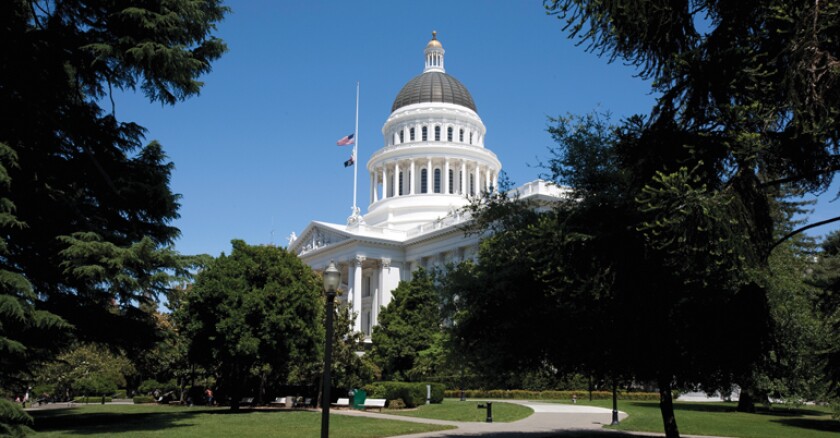Most major concepts in the legislation, Assembly Bill 1323 from San Francisco Democrat Assemblymember David Chiu, were included in AB 137, the budget trailer bill passed by the Legislature and signed by Gov. Gavin Newsom on July 16. They took effect immediately. Chiu said he counts that as “a real win” – and as validation from the administration, peers and private-sector supporters that his legislation was the right bill at the right time.

“Typically, things get put into budget trailer when there is strong consensus that we need to do something, and we need to do it now,” Chiu said. “And that was certainly the case here. As my bill went through the legislative process, it received enormous support from legislators. Unanimous, deep bipartisan support.” He described the 77 favorable votes that let AB 1323 clear the Assembly floor as “effectively, a unanimous vote.” Among the takeaways;
- AB 137’s passage means the California Department of Technology must “identify, assess and prioritize high-risk, critical information technology services and systems across state government,” as determined by CDT, “for modernization, stabilization or remediation.” And it means all state agencies and entities must submit information relating to their IT service contracts, as defined by CDT, to the technology agency before Feb. 1 – and in annual updates thereafter. Based in part upon that, CDT must report annually to the Legislature how it is prioritizing these “efforts across state government” and the “impediments and risks that could, or issues that already have,” prompted CDT to change how it identifies, assesses and prioritizes those efforts. Chiu called CDT’s required annual report to the Legislature and the public “an important jumping-off point,” adding: “We believe it could lead to future reforms once this process begins.”
- Based on its analysis in this annual report, the bill requires CDT to identify each service it “believes would be appropriately centralized as shared services contracts.” The department is also required to summarize the "market research” it would do to estimate one-time and ongoing costs to the state of each service and to calculate the potential savings of reducing overlap and redundancy. And CDT is required to implement a plan “to establish centralized contracts for identified shared services” – which may include but is not limited to “a list of existing service contracts of state agencies and state entities to be replaced with centralized service contracts” managed by CDT – plus a “proposed strategy and timeline” for any transitions to centralized service contracts. This, Chiu noted, could be of significance to IT vendors, and said: “We believe that there are ways to centralize approaches and ways to hopefully utilize the best innovations outside of government, to help California meet the needs of our constituents.” He highlighted examples of redundancy in CDT’s Vision 2023 report, released in January, which indicated state website users must search for public information and services across more than 300 websites managed by more than 150 departments.
- Asked the impact this might have on spend, Chiu pointed out that CDT received $25 million in one-time general fund monies in the enacted 2021-2022 Fiscal Year state budget for technology modernization. The funding is available until June 30, 2024, to pay for technology modernization solutions, “prioritized to improve or replace existing technology systems, increase information security or improve the effectiveness of state entities,” according to CDT’s budget. “Where can we centralize, consolidate and make more efficient what currently is not happening?” Chiu said, praising CDT’s partnership and support and “a real willingness” to do the work from the Newsom administration.
- One aspect of AB 1323 that didn’t make it into the budget trailer bill was language proposing that CDT analyze all “legacy systems,” Chiu said. As signed, AB 137 requires CDT to look at “high-risk, critical systems,” and not necessarily legacy. The lawmaker said he was “fine” with that.





